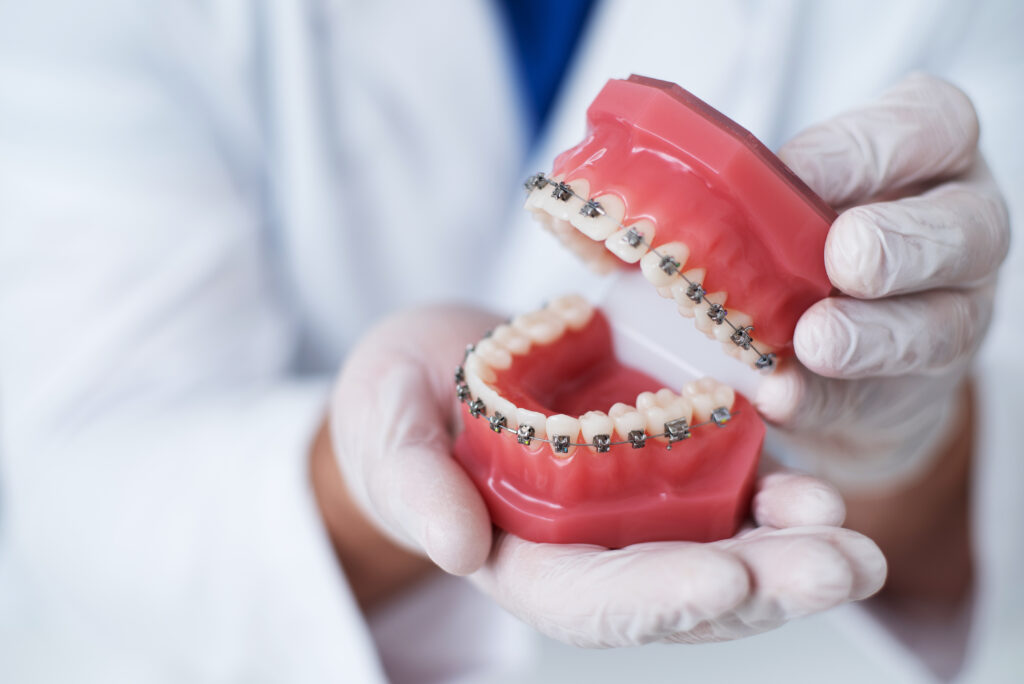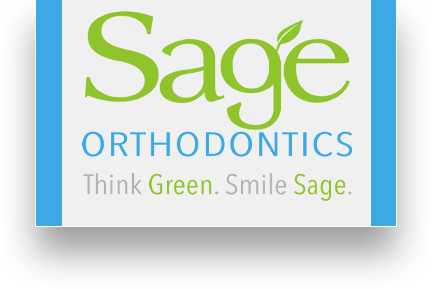
Many adults who never had orthodontics but needed them as kids are self-conscious of their smiles; yet they wonder if they are too old for braces. The answer is most likely no.
Straight teeth can help you bite, chew and, in some cases, speak properly. They also contribute to overall oral health. Properly aligned teeth and jaws may alleviate or prevent some physical health problems, too. Of course, an attractive smile can also have a positive mental health impact, boosting your social life and self-esteem.
Would an adult patient benefit from orthodontics?
In most cases, yes! Many adults seek orthodontic treatment to improve their smiles and maintain good oral health. Teeth can be adjusted at any age to create a healthy, straight new smile. Many orthodontic problems can be corrected as easily for adults as for children.
Benefits of adult braces
When teeth are properly aligned, they are easier to keep clean and therefore less prone to decay and gum disease. Straight teeth collect less plaque. Bacteria in plaque feed on the carbohydrates that we eat and drink. These bacteria excrete acids that cause decay. Plaque can also increase the risk of periodontal disease. Why not straighten teeth to lower your risk?
What is the best age to visit our orthodontist?
Adults and children of all ages can benefit from orthodontic treatment. For children, the American Association of Orthodontics recommends a first visit to our orthodontist in 49002 around the age of seven. There, our orthodontist can look for any potential issues that may be addressed now or as the child grows. Some orthodontists report seeing patients in their 80s and 90s!
What conditions can braces address in adults?
As an adult, you are no doubt used to your bite. That overbite might prevent you from eating, say, corn on the cob, but you’re long accustomed to cutting the kernels off. That crossbite might make it tough to floss, but you’ve resigned yourself to a less than clean mouth. Wouldn’t it be nice to have the teeth you’ve always dreamed of in a few months?
It’s not too late to get braces if you live with these conditions:
- Crowding
- Spacing issues
- Overbite
- Crossbite
- Under-bite
- Jaw misalignment
Will braces hurt?
Although braces don’t hurt, in the first couple days after initial fittings and adjustments you may feel a slight discomfort. This feeling is temporary and means that your teeth are being gently and slowly moved into the right place.
If I have braces, do I need to brush my teeth more often?
When you have orthodontics, it is important to brush your teeth around four or five times a day. This means brushing after every meal if possible, to prevent food from getting stuck. You should also floss after meals using special floss threaders and other appliances. It can be a tricky process at first, but you can certainly master it more easily than a child.
How long does adult orthodontic treatment take?
The duration of treatment can depend on many different variables. However, there are things you can do to make sure the process goes as quickly as possible. If you are required to wear rubber bands, for example, make sure to follow the instructions you receive. It is important to note that orthodontics can’t be rushed, or you risk permanent damage to the tooth nerves.
How often should I visit my regular dentist while I have braces?
It is particularly important to keep up with your general dentist appointments when you have braces. With orthodontics, it is easier for food to build up in places where your toothbrush can’t reach. This means going to see your general dentist regularly for a checkup every six months — or as directed — to ensure your teeth stay clean and decay-free.
Will having braces interfere with playing sports or playing a musical instrument?
No, braces will not prevent you from participating in activities such as playing sports or musical instruments, although it may take a little getting used to at first. However, if you are playing a sport, talk to our doctor to see if you should wear a mouthguard.
Finally getting the smile you have always wanted is easier than you think. Conventional braces and invisible aligners can make a big difference in your life at any age. Contact our orthodontics office in Portage, MI to discuss our options.

